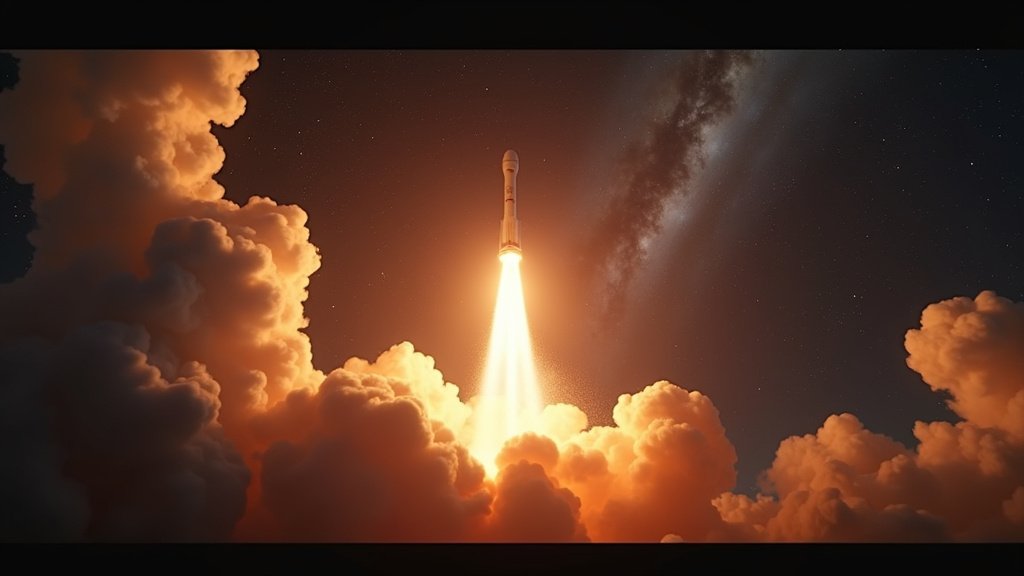In an ambitious endeavor to bolster Florida’s agricultural resilience against the escalating challenges of climate change, scientists have launched a groundbreaking project sending Florida-native seeds into the vast expanse of space. The initiative, a collaborative effort spearheaded by the University of Florida in partnership with the Florida Climate Reporting Network, aims to harness the unique environment of microgravity to cultivate plants with enhanced hardiness and adaptability.
Seeds of Change Launched Skyward
The seeds, carefully selected for their relevance to Florida’s diverse ecosystems and agricultural needs, embarked on their cosmic journey aboard a SpaceX rocket. This pioneering mission represents a significant leap in agricultural research, seeking to unlock genetic potential and physiological adaptations that could prove invaluable for farmers contending with increasingly unpredictable weather patterns. The core hypothesis is that exposure to the extreme conditions of space, including microgravity, can trigger beneficial mutations and adaptations, resulting in plants that are more robust and better equipped to withstand the environmental stressors of a warming planet.
The Science Behind Space Farming
At the heart of this project lies a detailed scientific methodology focused on studying the genetic changes and physiological adaptations that occur when seeds are exposed to microgravity. Scientists will meticulously analyze how these seeds respond to an environment devoid of Earth’s gravitational pull. This research delves into the fundamental ways that living organisms, even at the seed level, can respond to novel environmental stimuli. The hope is that these responses will translate into tangible benefits back on Earth, particularly for Florida’s agricultural sector.
Wagner Vendrame, a distinguished horticulture professor at the University of Florida, expressed optimism about the project’s potential impact. “This venture could significantly benefit Florida’s farmers,” Vendrame stated, highlighting the critical need for crops that can better tolerate the escalating threats of heatwaves, prolonged droughts, and severe flooding – conditions becoming increasingly common across the state. The development of plants with increased resistance to these adversities could safeguard crop yields, support food security, and ensure the economic viability of farming operations in Florida.
Beyond Earthly Concerns: Long-Term Space Missions
The research extends beyond the immediate agricultural benefits for Florida. An equally compelling aspect of the project is its exploration into the potential for these specially treated seeds to survive and thrive during long-term space missions. As humanity looks towards deeper space exploration and potential off-world colonization, the ability to cultivate food sources in space is paramount. Seeds that have been genetically enhanced or adapted through space exposure could form the foundation for sustainable agriculture beyond Earth, a critical step for future astronaut crews and space habitats.
This initiative, a prime example of cutting-edge editorial focus on climate solutions, brings together academic expertise and scientific inquiry to address pressing global and local challenges. The insights gleaned from this space-bound experiment are expected to inform future breeding programs and agricultural practices, both on Earth and potentially in space. The implications for how we grow food in the face of climate change are profound, offering a beacon of innovation and hope for the future of agriculture.
Examining the Future of Florida Agriculture
The project’s direct relevance to Florida cannot be overstated. The state’s agricultural industry, a vital component of its economy, faces continuous pressure from rising temperatures, changing rainfall patterns, and the increasing intensity of hurricanes. By sending seeds into space, researchers are actively seeking novel solutions to these challenges. The goal is to breed a new generation of crops that are not only more resilient but also require fewer resources, contributing to a more sustainable agricultural model. This news from the forefront of scientific exploration could very well redefine farming practices in the Sunshine State and beyond. While the seeds are currently in orbit, the anticipation of their return and the subsequent analysis holds the promise of a more secure and sustainable future for Florida’s beloved agricultural heritage. The implications are far-reaching, potentially impacting everything from staple crops to specialty produce, and even influencing urban farming initiatives in areas like Miami.





